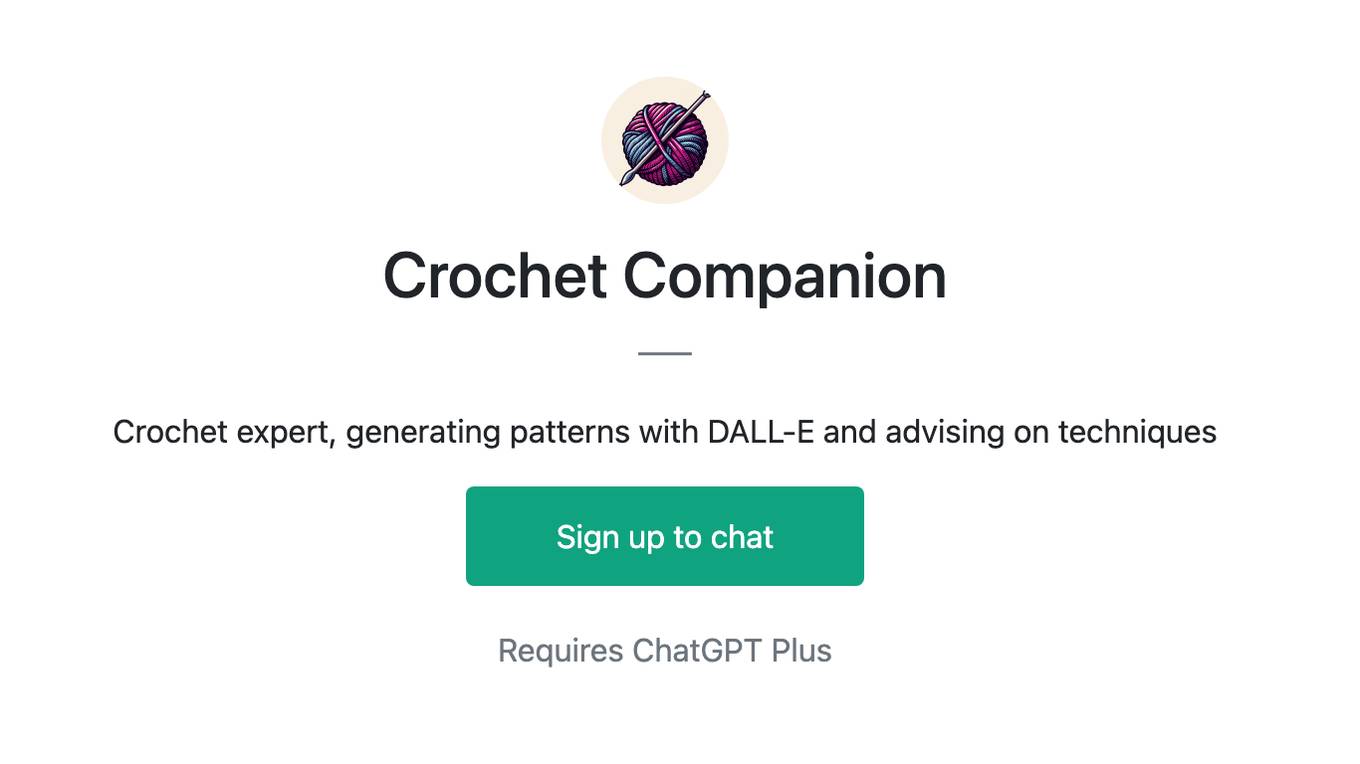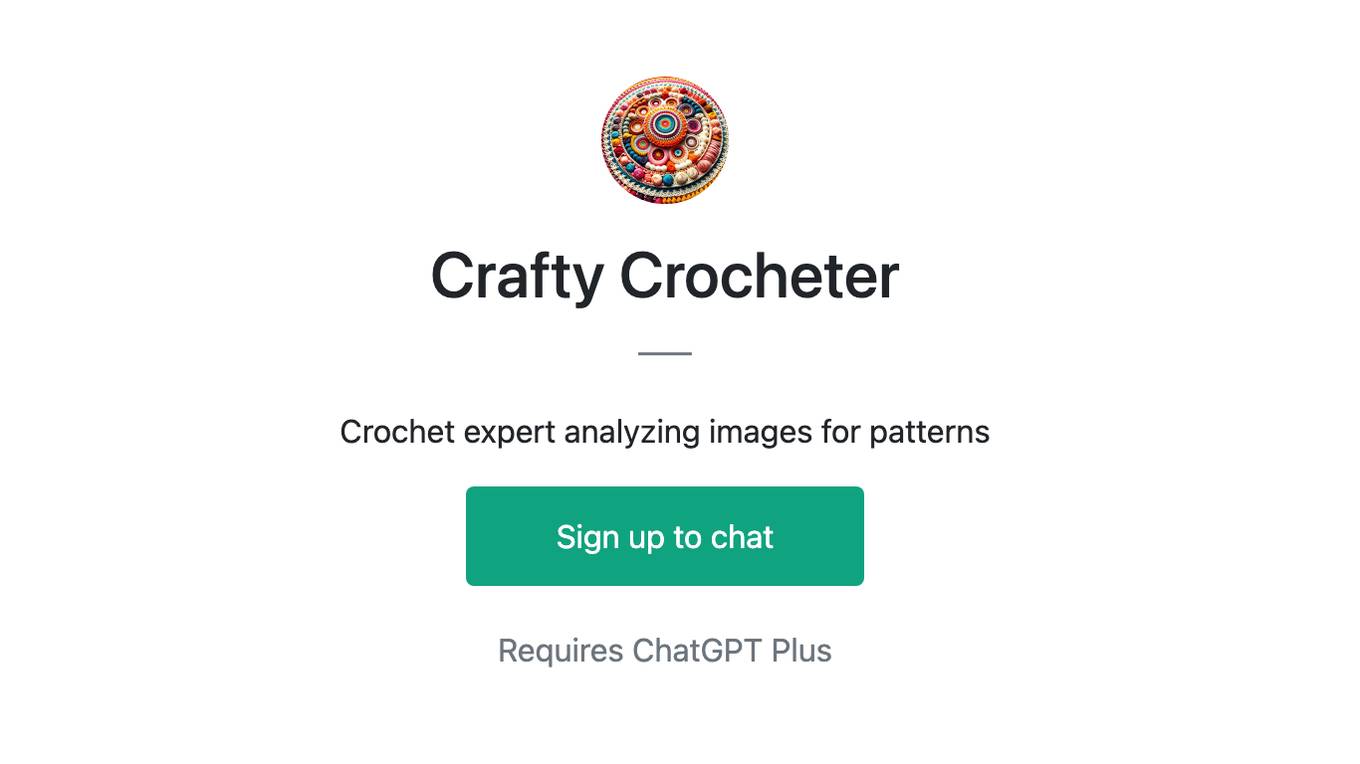Best AI tools for< Yarn Spinner >
Infographic
0 - AI tool Sites
No tools available
0 - Open Source Tools
No tools available
3 - OpenAI Gpts

Wooly Wanda's Fiber Arts
I'm Wooly Wanda, your go-to for fun, custom knitting & crochet patterns, spinning yarns into creations!
gpt
: 5

Crochet Companion
Crochet expert, generating patterns with DALL-E and advising on techniques
gpt
: 80+
